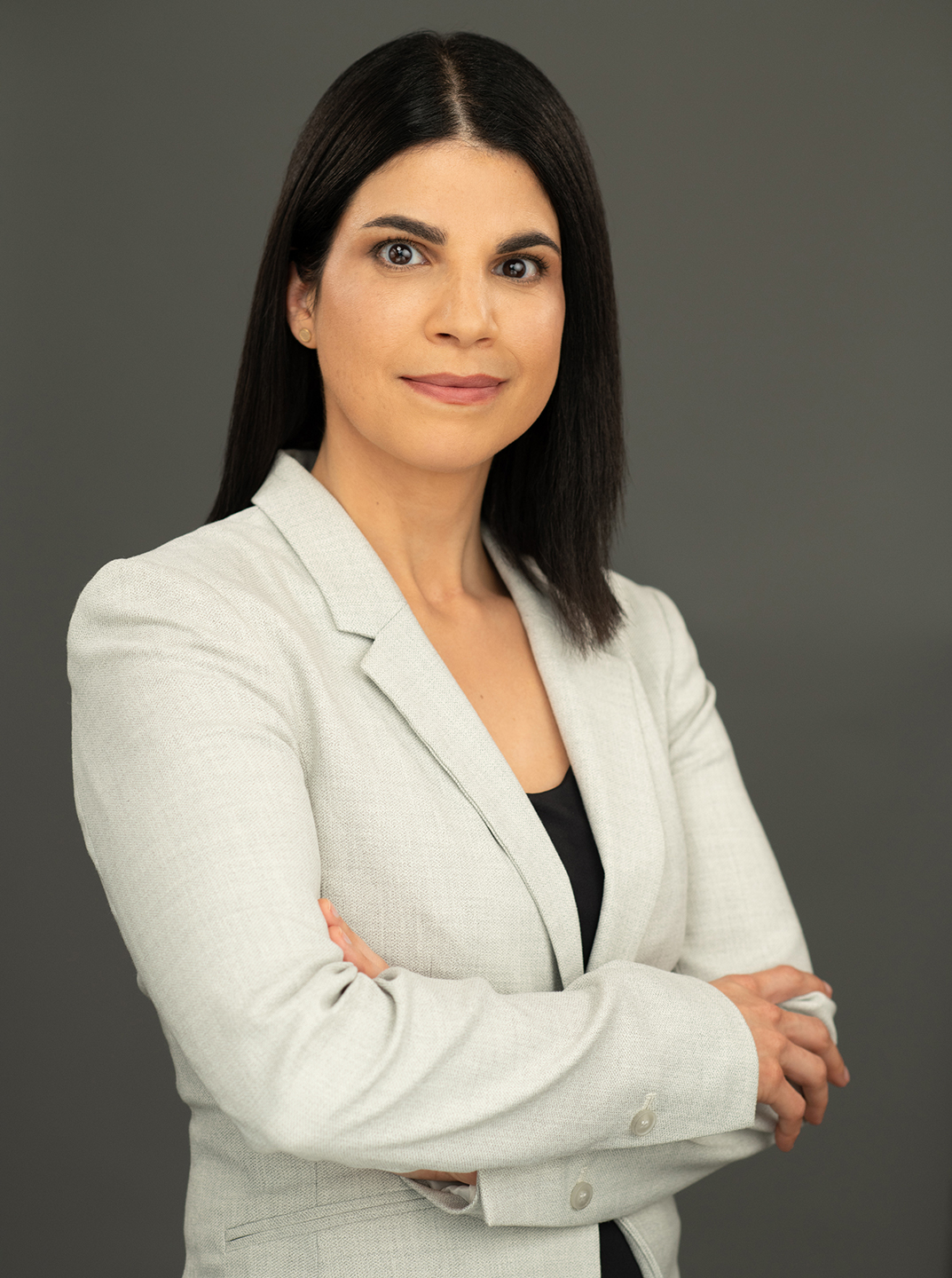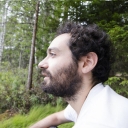Vered Shwartz, University of British Columbia

Vered Schwartz is visiting FoTran and the language technology group in Helsinki in connection with the public examination of the PhD thesis of one of the FoTran team members, Aarne Talman. She is staying from February 19 -24, 2024 and will also be part of our closing symposium of the project. Vered Shwartz is an Assistant Professor of Computer Science at the University of British Columbia, and a CIFAR AI Chair at the Vector Institute. Her research interests include commonsense reasoning, computational semantics and pragmatics, and multiword expressions. Previously, Vered was a postdoctoral researcher at the Allen Institute for AI (AI2) and the University of Washington, and received her PhD in Computer Science from Bar-Ilan University. Vered’s work has been recognized with several awards, including The Eric and Wendy Schmidt Postdoctoral Award for Women in Mathematical and Computing Sciences, the Clore Foundation Scholarship, and an ACL 2016 outstanding paper award.
Alessandro Raganato, University of Milano-Bicocca

Alessandro Raganato is still affiliated with FoTran as a visiting researcher and he is coming back to Helsinki to join us for the closing symposium on February 22, 2024. He is a tenure-track Assistant Professor (RTDb) at the University of Milano-Bicocca, in the Department of Informatics, Systems and Communication (DISCo). He is a member of the IKR3 Lab headed by Prof. Gabriella Pasi, working on Natural Language Processing (NLP). Previously, he was working at the FoTran project in Helsinki and did his PhD at the SapienzaNLP Lab of the Sapienza University of Rome under the supervision of Prof. Roberto Navigli, as a member of two ERC-funded projects (MultiJEDI and MOUSSE).
Marianna Apidianaki, University of Pennsylvania

Marianna Apidianaki is another former FoTran team member who will return to Helsinki to join us in the closing symposium on February 22, 2024. She currently works as Senior Research Investigator in the Department of Computer and Information Science (CIS) at the University of Pennsylvania in Philadelphia, on leave from the French National Research Center (CNRS) where she holds a tenure researcher position. She is also associated with the NLP group in the Department of Informatics at the Athens University of Economics and Business. From 2019 to 2021, she worked as Senior Researcher in the Language Technology lab at the University of Helsinki. Since 2017, she holds an adjunct appointment in the Computer and Information Science Department at the University of Pennsylvania.
Raquel Fernandez, University of Amsterdam
Raquel Fernandez is a Professor of Computational Linguistics & Dialogue Systems and the Vice-Director for Research at the Institute for Logic, Language & Computation (ILLC), University of Amsterdam, where she leads the Dialogue Modelling Group. Her research is concerned with computational semantics and pragmatics, specifically language use in interaction, dialogue models, conversational AI, language variability and change, and visually grounded language. She is currently funded by the European Research Council (ERC Consolidator grant 819455). She visited Helsinki in connection with the Workshop on Uncertainty and Grounding in Language and Translation Modelling (UnGroundNLP-2022), which was jointly organized by the FoTran project and the project on Uncertainty-Aware Neural Language Models, funded by the Research Council of Finland.
Peter Gärdenfors, Lund University
Peter Gärdenfors is Professor of Cognitive Science at Lund University with broad interests on the intersections between the philosophy of science, decision theory, belief revision and nonmonotonic reasoning. His current research interests are concept formation (using conceptual spaces based on geometrical and topological models), cognitive semantics, models of knowledge and information, human-robot interaction and the evolution of cognition. He also visited Helsinki in connection with the Workshop on Uncertainty and Grounding in Language and Translation Modelling (UnGroundNLP-2022), and presented a keynote “Using conceptual spaces and event representations to construct semantics for artificial systems”
Barbara Plank, LMU Munich
Barbara Plank is a Professor and Chair of AI & Computational Linguistics at LMU Munich. Previously, she worked at the IT University of Copenhagen, the Universities of Groningen, Copenhagen and Trento. She graduated from Groningen and almost moved to Helsinki for a position in language technology. She visited Helsinki and FoTran in connection with UnGroundNLP-2022 and gave a keynote on “Perspectives on Human Uncertainty in Annotation for NLP”
Denis Paperno, Utrecht University
Denis Paperno from Utrecht University is visiting Helsinki-NLP and the FoTran project in December 2022. He will give a talk in our language technology research seminars on Thursday, December 22 with the title “To the limits of Distributional Semantics and Beyond”.

David Mareček (Charles University Prague)
David Mareček visited the FoTran team in the autumn of 2019.

David Mareček presented his recent work on neural-networks interpretation, more specifically, what linguistic structures are latently learned by neural networks when solving downstream tasks like machine translation or sentiment analysis. Instead of using probing (supervised learning of linguistic features from hidden states), he focuses on an unsupervised extraction of the features. For instance, how part-of-speech tags are encoded in word embeddings or what syntax is learned inside the transformer’s self-attentions. See the whole presentation here: Searching for hidden linguistic structures in neural networks.
Desmond Elliot, University of Copenhagen
Desmond Elliot is an Assistant Professor and a Villum Young Investigator at the University of Copenhagen where he builds and attempts to understand multimodal and multilingual models. His work received the Best Long Paper Award at EMNLP 2021 and an Area Chair Favourite paper at COLING 2018. His research is funded by the Velux Foundations, the Innovation Foundation, and the Novo Nordisk Foundation. He co-organised the Multimodal Machine Translation Shared Task from 2016–2018, the 2018 Frederick Jelinek Memorial Workshop on Grounded Sequence-to-Sequence Learning, the How2 Challenge Workshop at ICML 2019, and the Workshop on Multilingual Multimodal Learning at ACL 2022. He came to Helsinki to visit our research group and the FoTran proect in 2019 and also gave a talk on “Shortcomings in (some) Vision and Language Models“.
Nikola Ljubešić, Jožef Stefan Institute, Ljubljana
Nikola Ljubešić is a research fellow at the Jožef Stefan Institute, Ljubljana and works in on various topics in NLP with a focus on infrastructures and resources for South Slavic Languages. He visited Helsinki and the FoTran project in connection with the public examination of Tommi Jauhianen’s PhD defense on “Language identification in texts” and also collaborates with another Helsinki project on Corpus-based Computational Dialectology (CorCoDial).
Måns Huldén
Mans Hulden received his PhD in Linguistics from the University of Arizona in 2009. He joined University of Colorado’s linguistics faculty in 2014 after postdoctoral research as a Marie Curie fellow at the University of Helsinki and a stint as visiting professor in Computer Science at the University of the Basque Country. His research focuses on developing computational methods to infer and model linguistic structure using varying degrees of prior linguistic knowledge, particularly in the domains of phonology and morphology. He has worked extensively with linguistic applications of finite state technology, modeling of linguistic theory, grammatical inference, and the development of language resources, and is the author of several open-source tools for finite-state language modeling. During his visit in Helsinki in 2019 he gave a presentation on “Linguistic with Neural Networks”
Stergios Chatzikyriakidis, University of Gothenburg
Stergios Chatzikyriakidis is a Professor of Computational Linguistics at the University of Crete. He earned his BA in Greek Philology specializing in Linguistics from Aristotle University, Thessaloniki. He continued his studies obtaining an MSc in Computational Linguistics and Formal Grammar, and a PhD in Linguistics, both from King’s College, London. He has worked at Royal Holloway, University of London, the French National Centre for Scientific Research (CNRS), the Open University of Cyprus and the University of Gothenburg. From 2016 until 2021, He was the Associate Director of the Center for Linguistic Theory and Studies in Probability (CLASP). During his visit in Helsinki in 2018 he gave a talk on “What kind of Natural Language Inference are NLP systems learning?”. He is also co-supervising one of the FoTran team members, Aarne Talman, who defends his PhD thesis in 2024 as part of the FoTran project.
Kyunghyun Cho, New York University
Kyunghyun Cho is a professor of computer science and data science at New York University and a senior director of frontier research at the Prescient Design team within Genentech Research & Early Development (gRED). He is also a CIFAR Fellow of Learning in Machines & Brains and an Associate Member of the National Academy of Engineering of Korea. He is also a founding co-Editor-in-Chief of the Transactions on Machine Learning Research (TMLR) and was a research scientist at Facebook AI Research from June 2017 to May 2020 and a postdoctoral fellow at University of Montreal until Summer 2015 under the supervision of Prof. Yoshua Bengio, after receiving MSc and PhD degrees from Aalto University. He received the Samsung Ho-Am Prize in Engineering in 2021. He visited Helsinki and the FoTran project in connection with the project kickoff workshop and gave a keynote on “Three recent directions in neural machine translation“.
Manaal Faruqui, Google/New York
Manaal Faruqui is a research scientist at Google working on Google Bard, where he leads a team of research scientists and engineers working on the model quality of Bard spanning factuality (producing factful responses), instruction following, and general quality management of the training mixture. During his visit in Helsinki, he gave a keynote on “Understanding Structure in Language through Wikipedia Edits” as part of the FoTran kickoff workshop.
André Martins, University of Lisbon / Unbabel
André Martins is an Associate Professor at Instituto Superior Técnico, Senior Researcher at the Instituto de Telecomunicações, and VP of AI Research at Unbabel in Lisbon, Portugal. He received his PhD from the joint CMU-Portugal program in Language Technologies, at Carnegie Mellon University and Instituto Superior Técnico under the supervision of Mário Figueiredo, Noah Smith, Pedro Aguiar and Eric Xing. He successfully ran an ERC (European Research Council) Starting Grant on “Deep Structured Prediction in Natural Language Processing (DeepSPIN) and recently received an ERC Consolidator Grant on “Deep Cognition Learning for Language Generation (DECOLLAGE)”. He visited Helsinki and the FoTran project for the kickoff workshop in 2018 and gave a keynote on “Beyond Softmax: Sparsity, Constraints, Latent Structure – All End-to-End Differentiable!”
Ivan Vulić, University of Cambridge
Ivan Vulić is a Principal Research Associate in the Language Technology Lab at the University of Cambridge . He received the 2021 Microsoft BCS/BCS IRSG Karen Spärck Jones Award for contributions to natural language processing and information retrieval. He holds a PhD in Computer Science from KU Leuven (awarded summa cum laude with congratulations of the board of examiners) and during his visit in Helsinki he gave a keynote at the FoTran kickoff workshop on “Multilingual NLP via Cross-Lingual Word Embeddings“.
